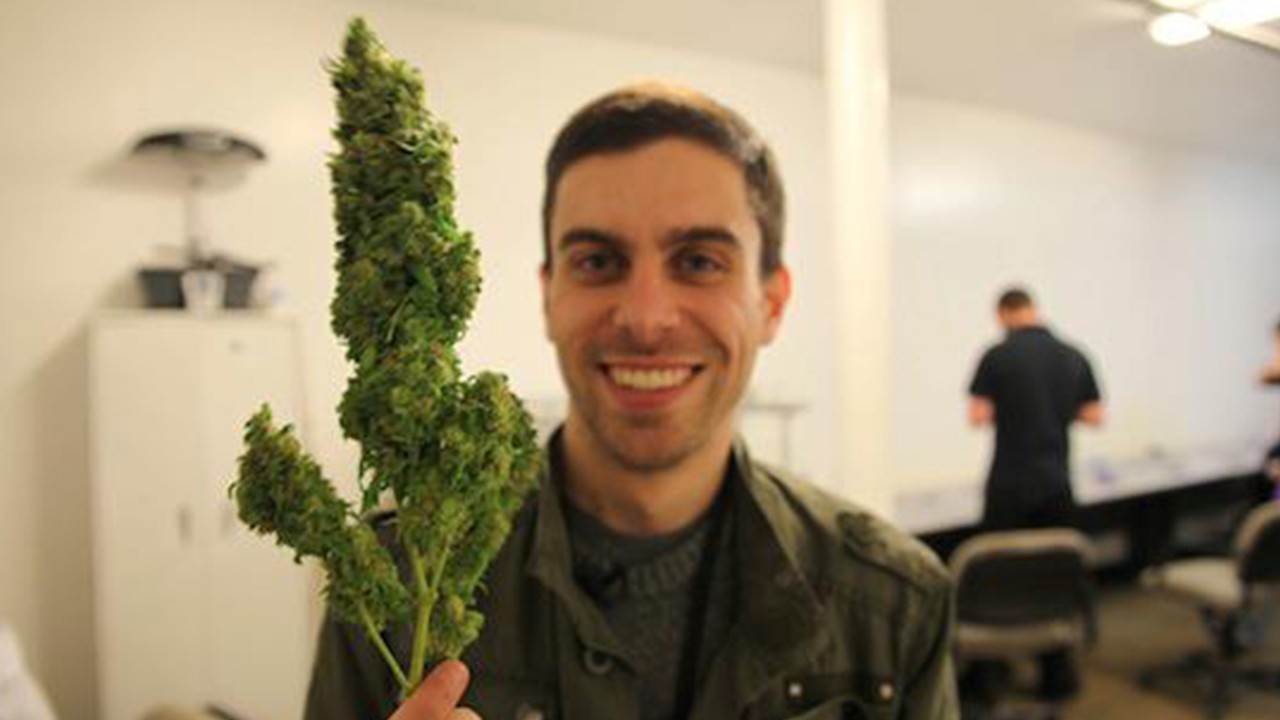On May 24, the state of Vermont, known for generally progressive things like renewable energy and Bernie Sanders, shot down a bill to legalize recreational marijuana. Had it passed, the state would have become the first to achieve legalization through legislative push rather than the ballot box. The bill was vetoed by Republican Governor Phil Scott on the grounds that it needed a little more time in the oven -- "We must get this right," he said of his decision, though the generally centrist-leaning governor's exact intentions remain somewhat opaque. The majority of the state's legislative leadership, including Lieutenant Governor David Zuckerman, support the effort.
Advertisement
"The cynical view is, he vetoed after we were all working on this bill all session. He knows how the schedule works," says Eli Harrington, co-founder of Vermont cannabis news and advocacy group Heady Vermont. "So it's an issue he doesn't want to address, he's shifting the pressure back to the legislature, and there's not the legislative support and he knows it. The optimistic view is that he was caught by surprise, which is not really a good excuse or a good sign, but maybe he's not philosophically opposed to at least the legalization and criminal justice reform parts."Harrington, who's been involved with the bill since July 2015, doesn't seem to buy that Scott was caught off guard. And because it was attempted via legislative approval rather than a referendum, it was actually already much more conservative than the proposals of its New England peers -- legislators don't want to bring a bill with specific language that has no chance of passing.
"Here, the pressure wasn't about getting people to vote," Harrington says. "It's calling legislators, most of whom are retirees over 60 who don't know a lot about pot, and most of them are ambivalent or there's a handful in the 'reefer madness' camp who are going to oppose anything because it's the devil's lettuce."So what happens now?The bill is headed back to state legislature with Scott's suggestions. In the wake of the veto, Harrington and other state cannabis activists met at Scott's office to look over the changes the governor suggested for the bill. While he can't yet share specifics, he does stress that since the new version of bill will contain new language -- whether the changes are ultimately big or small -- legislators would have to vote to suspend traditional rules and push the bill through in a special two-day session beginning June 21. Even if everything gets done in time and the bipartisan legislative support comes through and new bill is drafted according to Scott's exact specifications, he can still veto it then if he wants to -- but it would be a sizable blow to the credibility of a historically very popular governor.The new focal point for recreational legalization in 2017 seems to be the Northeast.
Advertisement
Like the rest of us, Harrington isn't sure what will happen June 21. But he does believe legalization in Vermont is inevitable. And even though state's push failed in the short term, it nevertheless forecasts two big trends in state-level legalization of recreational marijuana this year.
Check out more videos from VICE:
The first of those is location. To date, eight states and the District of Columbia have legalized marijuana fully, while more than half the states have at least made the jump to legalize some form of medical usage and/or decriminalize possession. The early drives came from the West -- Colorado and Washington were the first to approve recreational usage, with the second wave including Alaska, Oregon, California, and Nevada -- and with a few exceptions, states that have gotten as far as medical usage tend to hug the Canadian border. But the new focal point for recreational legalization in 2017 seems to be the Northeast.
Check out more videos from VICE:

The first of those is location. To date, eight states and the District of Columbia have legalized marijuana fully, while more than half the states have at least made the jump to legalize some form of medical usage and/or decriminalize possession. The early drives came from the West -- Colorado and Washington were the first to approve recreational usage, with the second wave including Alaska, Oregon, California, and Nevada -- and with a few exceptions, states that have gotten as far as medical usage tend to hug the Canadian border. But the new focal point for recreational legalization in 2017 seems to be the Northeast.
In addition to D.C., Maine and Massachusetts have already legalized. The Northeast is stuffed with tiny states that aren't that far apart, and now that two New England states have already legalized, their neighbors can either do the same or watch their residents simply drive across the nearest border, taking hundreds of millions in missed tax revenue with them. Connecticut, Delaware, and Rhode Island are all now working to push through their own bills for recreational usage. And while there are many nice things to look forward to when Chris Christie leaves office in January 2018, one is that he'll finally be removed from the path of legalization in New Jersey, where other state legislators have been eyeing it for some time.The second trend is the means by which Vermont (almost) did what it did. The aforementioned eight states and D.C. all got where they are through ballot measures. But now that the momentum behind legalization is powerful enough -- and the majority of Americans who favor broad legalization is only increasing -- more state politicians are drafting bills. In 2017 alone, 17 states have introduced legislation to legalize recreational weed. If Vermont isn't the first to pass its version, another state will be soon."It's [now] about continued public engagement and public pressure," Harrington says. "Clicking 'Like' and 'Share' is one thing, but picking up the phone, showing up to events in person, calling politicians, writing op-eds -- that's the bigger piece. The whole thing's been interesting to see what grassroots advocacy and activism works here and what doesn't. People now are engaging and learning more about civics; not just the basic processes, but the more complex ones."To learn more about pushing weed legalization, head to organizations like the Marijuana Policy Project and NORML.In 2017 alone, 17 states have introduced legislation to legalize recreational weed. If Vermont isn't the first to pass its version, another state will be soon.
